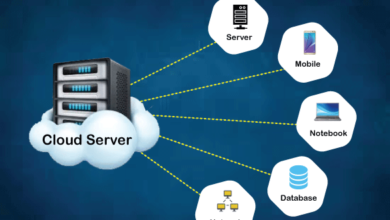10 Tips and Strategies for Small Business Bookkeeping

Effective bookkeeping is essential for the success and financial health of any small business. Proper bookkeeping ensures accurate financial records, enables informed decision-making, and helps businesses comply with tax regulations. However, managing bookkeeping tasks can be overwhelming, especially for small business owners who may lack accounting expertise.
Consistent and accurate bookkeeping practices are key to achieving long-term success and sustainability in today’s competitive business landscape. Otherwise, you can opt for outsourced bookkeeping for small business to streamline your business. In this guide, we’ll provide 10 valuable tips and strategies to help small businesses streamline their bookkeeping processes and maintain organized financial records.
Maintain Separate Business and Personal Accounts:
Keeping business and personal finances separate is crucial for accurate bookkeeping. Open a dedicated business bank account and use it exclusively for business transactions. This separation simplifies record-keeping, ensures transparency, and makes it easier to track business expenses for tax purposes.
Use Accounting Software:
Invest in reputable accounting software to streamline bookkeeping tasks and automate routine processes. Cloud-based accounting software, such as QuickBooks or Xero, offers features like invoicing, expense tracking, and financial reporting. These tools simplify bookkeeping tasks, save time, and provide valuable insights into your business’s financial health.
Establish a Chart of Accounts:
Create a chart of accounts tailored to your business’s needs and industry. A chart of accounts categorizes financial transactions into specific accounts, such as revenue, expenses, assets, and liabilities. Organizing transactions systematically makes it easier to track income and expenses, identify trends, and generate accurate financial reports.
Track Expenses Consistently:
Maintain detailed records of business expenses, including receipts, invoices, and payment records. Categorize expenses accurately using your chart of accounts to monitor spending in various categories. Tracking expenses diligently helps control costs, maximize deductions, and ensure compliance with tax regulations.
Reconcile Bank Statements Regularly:
Reconcile your business bank accounts regularly to ensure that your accounting records match your bank statements. Compare transactions in your accounting software with those on your bank statements, identifying any discrepancies or errors. Reconciliation helps detect fraudulent activities, bank errors, or discrepancies in recorded transactions.
Invoice Promptly and Follow Up on Payments:
Send invoices promptly for goods sold or services rendered to customers or clients. Clearly outline payment terms, due dates, and accepted payment methods on invoices to facilitate timely payments. Follow up on overdue invoices promptly to minimize cash flow issues and maintain healthy customer relationships.
Set Aside Funds for Taxes:
Allocate a portion of your business income for taxes and set aside funds regularly to cover tax obligations. Estimate your tax liability based on your business’s earnings and expenses, taking into account applicable tax rates and deductions. Planning ahead and saving for taxes helps prevent financial strain and ensures compliance with tax deadlines.
Stay Organized with Receipts and Documents:
Keep all financial documents and records organized in a secure and accessible manner. Store receipts, invoices, bank statements, and other financial documents digitally or in physical files. Organizing documents systematically facilitates record-keeping, simplifies audits or financial reviews, and ensures compliance with regulatory requirements.
Review Financial Reports Regularly:
Monitor your business’s financial performance by reviewing financial reports regularly. Key reports to review include profit and loss statements, balance sheets, and cash flow statements. Analyze trends, identify areas for improvement, and make informed decisions based on financial insights provided by these reports.
Seek Professional Assistance When Needed:
Don’t hesitate to seek professional assistance from accountants or bookkeepers when navigating complex accounting tasks or tax-related issues. An experienced financial professional can provide valuable guidance, ensure compliance with regulations, and offer strategic advice to help your business succeed.
Last Words
Effective bookkeeping is essential for the financial health and success of small businesses. MonkTaxSolutions will help you by implementing these tips and strategies, where small business owners can streamline their bookkeeping processes, maintain organized financial records, and make informed decisions to drive growth and profitability.




